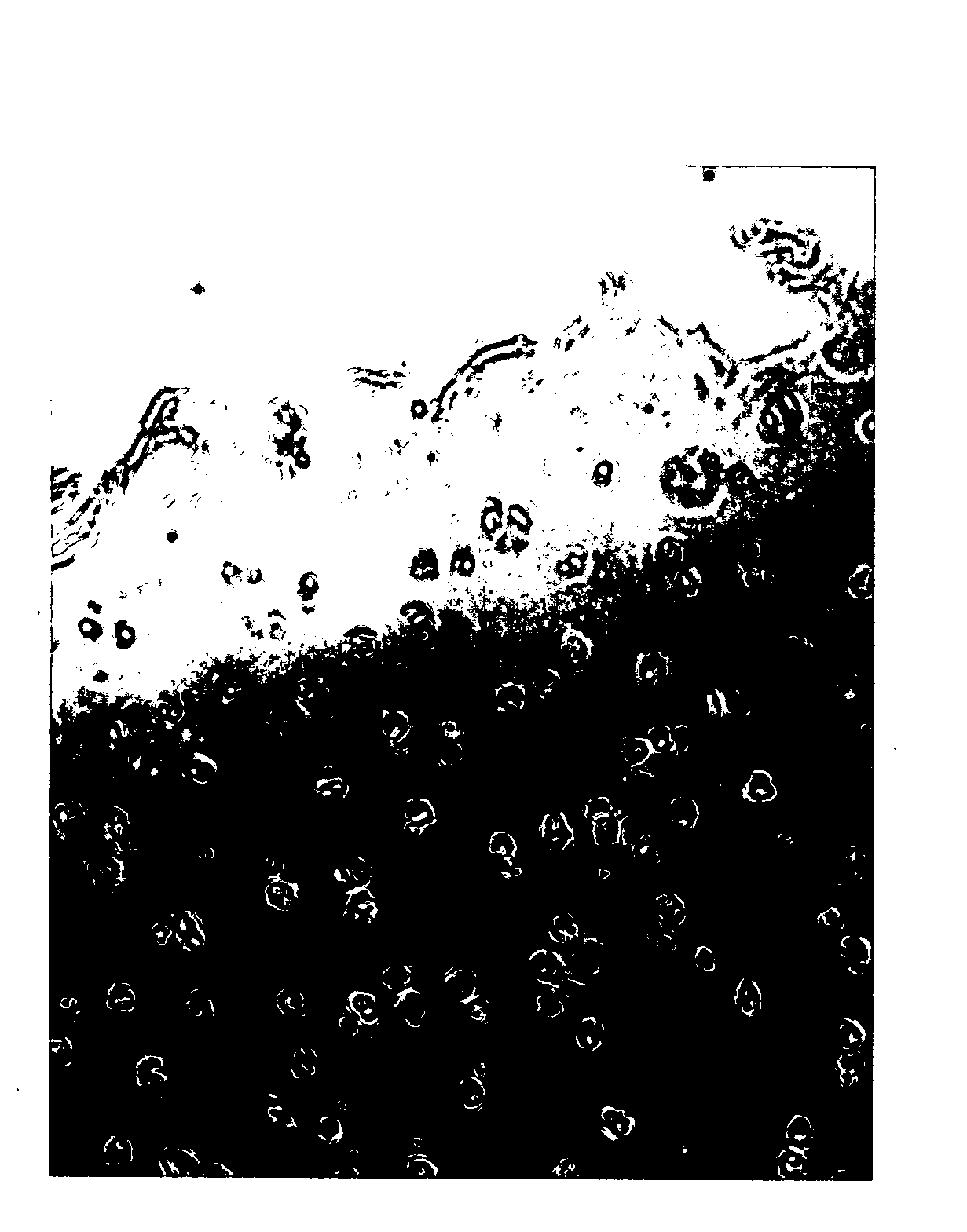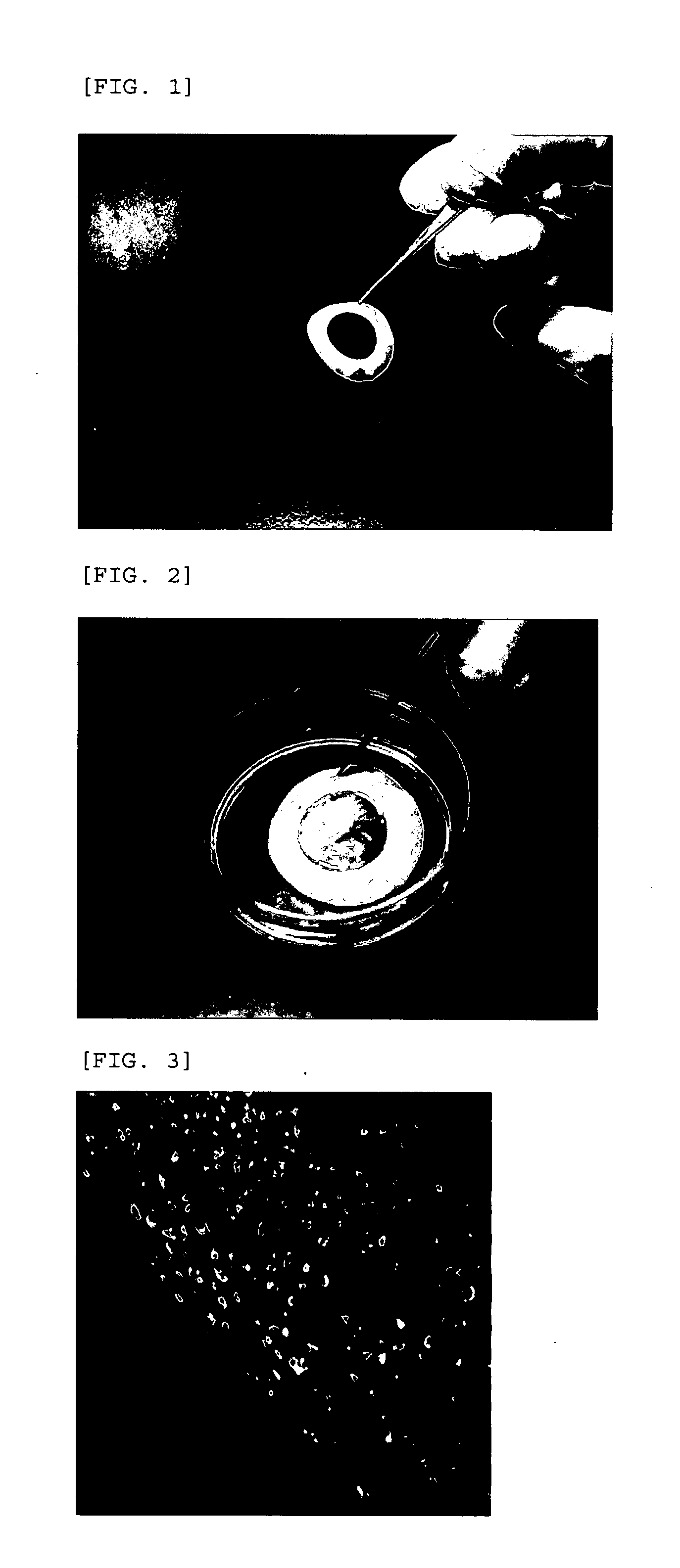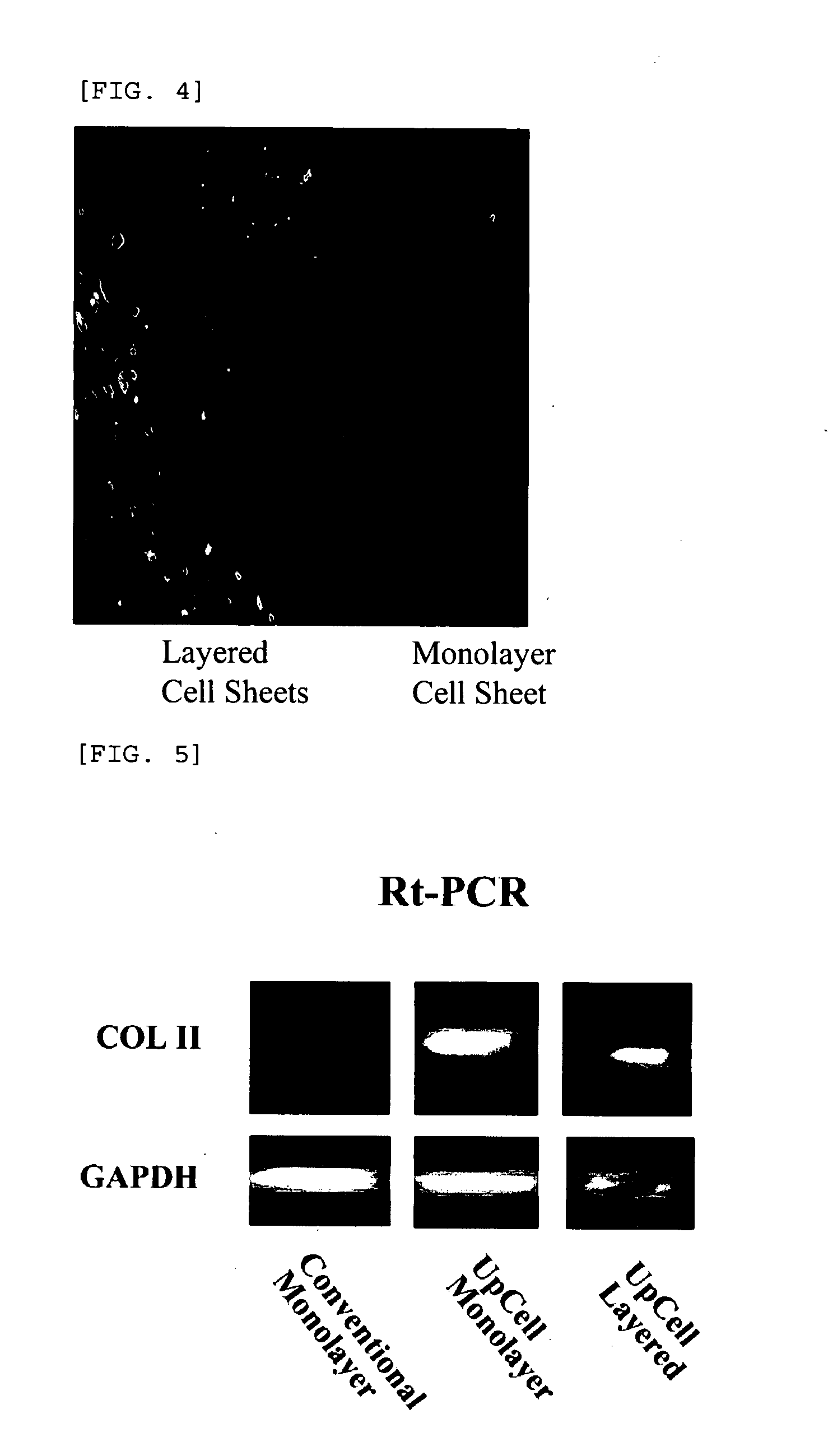Cultured Cell Sheet, Production Method Thereof, and Application Method Thereof
a cell sheet and production method technology, applied in the field of cultured cell sheets, can solve the problems of reducing limiting the movement of pp, and affecting the quality of life of a person, so as to achieve the effect of improving the quality of life, high density, and high adhesiveness
- Summary
- Abstract
- Description
- Claims
- Application Information
AI Technical Summary
Benefits of technology
Problems solved by technology
Method used
Image
Examples
examples
[0066]Hereinafter, the present invention will be explained in further detail based on the following Examples, which are not intended to limit the scope of the present invention in any way.
examples 1 and 2
[0067]To a commercial culture dish with a diameter of 3.5 cm (Falcon 3001, manufactured by Becton Dickinson Labware), 0.07 ml of the solution of N-isopropyl acrylamide monomer dissolved in isopropyl alcohol at a concentration of 53% (Example 1) or 54% (Example 2) was applied. The culture dish was exposed to electron beams at an intensity of 0.25 MGy, and the N-isopropyl acrylamide polymer (PIPAAm) was immobilized on a surface of the culture dish. After irradiation, the culture dish was washed with ion-exchanged water to remove a residual monomer and the PIPAAm that did not bind to the culture dish, was then dried inside a clean bench, and sterilized by ethylene oxide gas, to obtain a cell culture support material coated with a temperature responsive polymer.
[0068]The amount of the temperature responsive polymer on the support surface was measured. As a result, it was found that the supports' surface was coated with the temperature responsive polymer in an amount of 1.7 μg / cm2 (Examp...
example 3
[0072]The cell culture support material was prepared by a similar method to that of Example 2, with the exception that, 0.07 ml of the solution of the N-isopropyl acrylamide monomer dissolved in isopropyl alcohol at a concentration of 55% was applied to the abovementioned commercial culture dish with a diameter of 3.5 cm (Falcon 3001, manufactured by Becton Dickinson Labware).
[0073]The amount of the temperature responsive polymer on the surface of the support was measured. As a result, it was found that the support's surface was coated with the polymer in an amount of 2.0 μg / cm2. Articular cartilage was excised from a pig knee, treated with 0.4% (W / V) pronase for approximately 1 hour, and 0.025% (W / V) collagenase for approximately 6 hours to obtain chondrocytes, which were seeded (5000 cells / cm2) on the surface of the cell culture support. DMEM / F12 culture medium supplemented with 20% bovine serum was used as the culture medium. The cells were cultured at 37° C., under 5% CO2, resul...
PUM
| Property | Measurement | Unit |
|---|---|---|
| Temperature | aaaaa | aaaaa |
| Temperature | aaaaa | aaaaa |
| Time | aaaaa | aaaaa |
Abstract
Description
Claims
Application Information
 Login to View More
Login to View More - R&D
- Intellectual Property
- Life Sciences
- Materials
- Tech Scout
- Unparalleled Data Quality
- Higher Quality Content
- 60% Fewer Hallucinations
Browse by: Latest US Patents, China's latest patents, Technical Efficacy Thesaurus, Application Domain, Technology Topic, Popular Technical Reports.
© 2025 PatSnap. All rights reserved.Legal|Privacy policy|Modern Slavery Act Transparency Statement|Sitemap|About US| Contact US: help@patsnap.com



